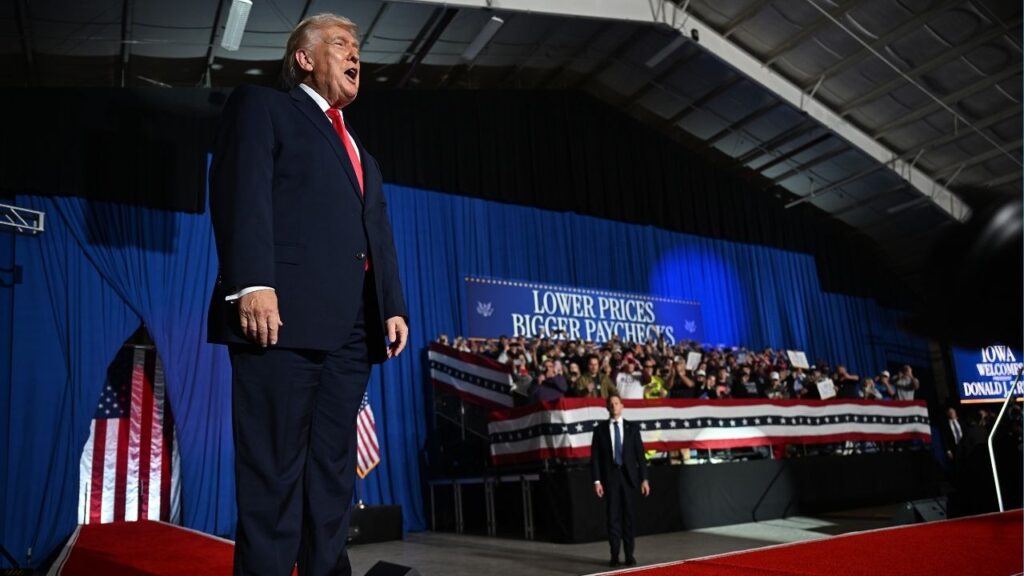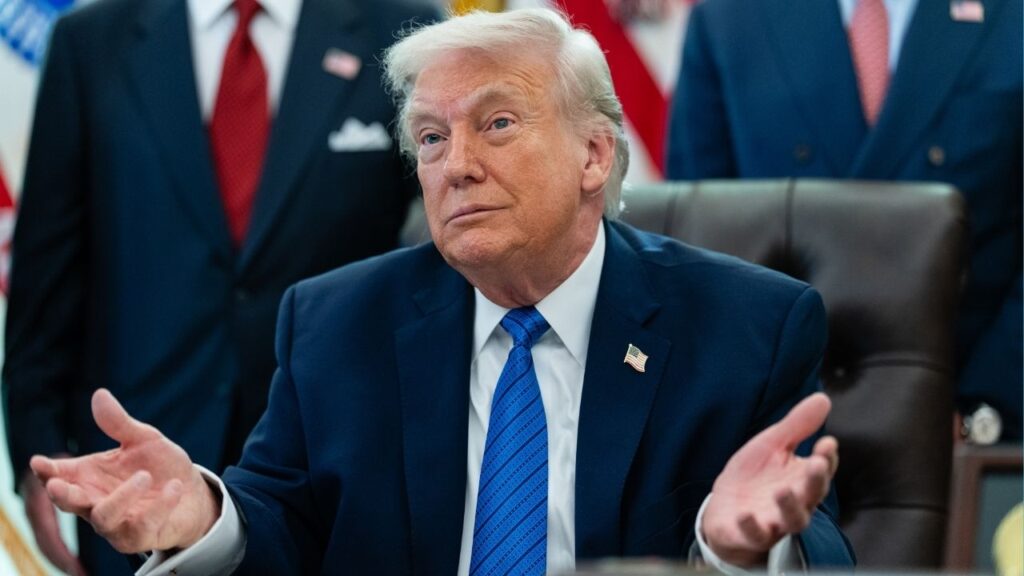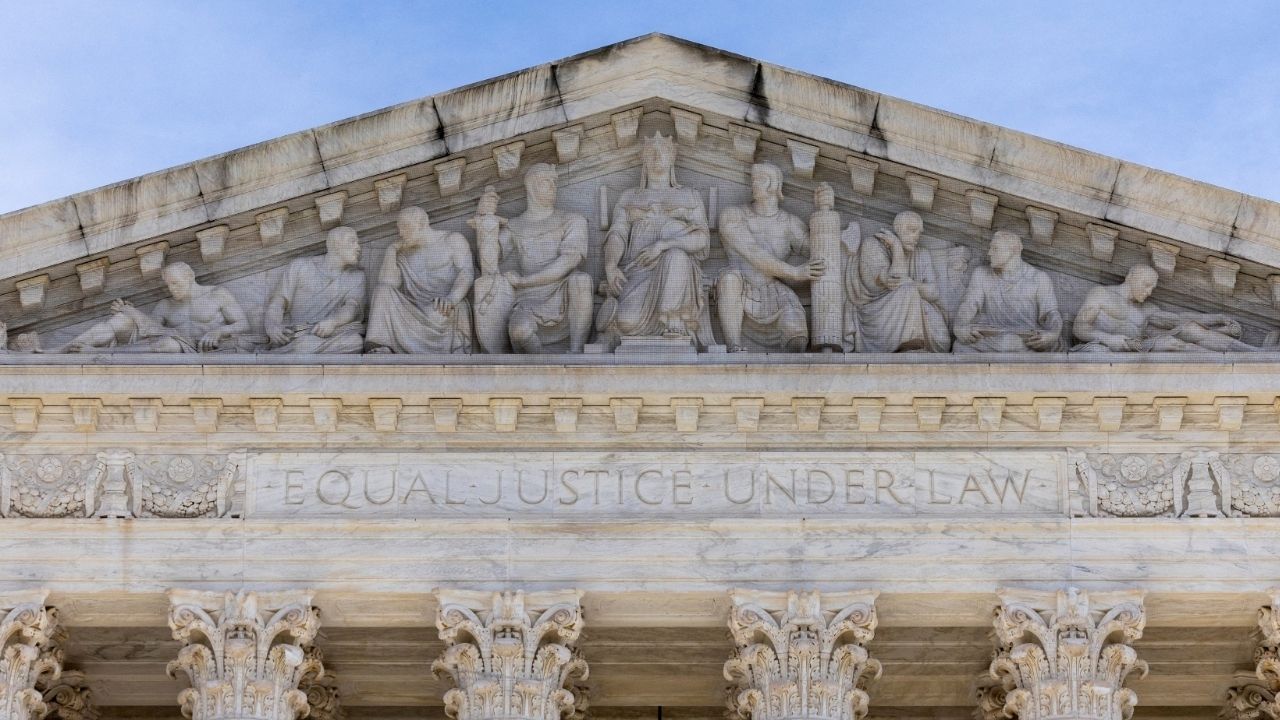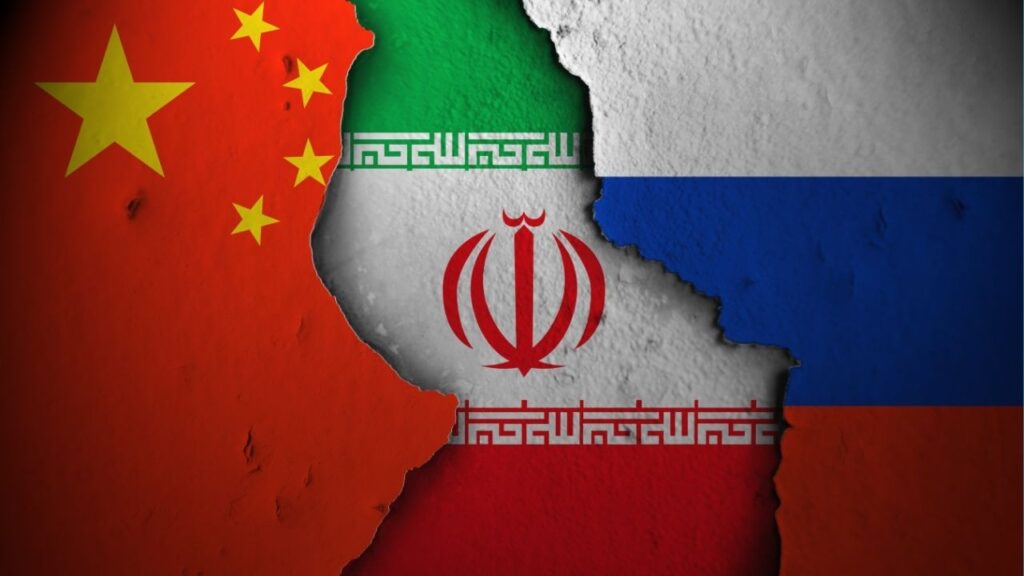General view shows The United States Supreme Court, in Washington, U.S., February 8, 2024. (Reuters File)
Share
|
Getting your Trinity Audio player ready...
|
WASHINGTON — The U.S. Supreme Court sided again on Friday with Donald Trump, allowing his administration to withhold about $4 billion in foreign aid authorized by Congress for the current fiscal year as the Republican president pursues his “America First” agenda.
The justices for now blocked Washington-based U.S. District Judge Amir Ali’s order that had directed the administration to promptly take steps to spend the aid at issue in the dispute. Ali’s decision came in a lawsuit by aid groups challenging the administration’s action.
The Supreme Court has a 6-3 conservative majority. The court’s three liberal justices dissented.
The court said in its unsigned order that the aid groups that sued the administration likely lacked the legal authority to bring their challenge. It also expressed concerns that ruling against Trump threatened to impair his power to conduct foreign affairs.
The case raised questions involving the degree to which a president has the authority to rescind funds Congress has appropriated for programs that do not align with his policies.
The administration said in court papers that the money it targeted is “contrary to U.S. foreign policy,” reflecting Trump’s effort to scale back U.S. assistance abroad as part of an “America First” agenda. Trump also has moved to dismantle the U.S. Agency for International Development, the main U.S. foreign aid agency.
What Is the $4 Billion For?
The U.S. government’s 2025 fiscal year ends on September 30. The $4 billion in aid spending at issue in the case was intended by Congress for foreign aid, United Nations peacekeeping operations and democracy-promotion efforts overseas.
Congress budgeted billions of dollars in foreign aid last year, about $11 billion of which was set to expire at the end of the fiscal year.
The administration sought to block the $4 billion at issue in the case through a “pocket rescission,” an unusual move aimed at avoiding spending funds appropriated by Congress. The U.S. Constitution gives Congress the power of the purse.
The liberal justices, in a dissent written by Justice Elena Kagan, said Friday’s ruling was an affront to the principle that power is separated between the three branches – executive, legislative and judicial – of the U.S. government. They noted that the U.S. Constitution “gives Congress the power to make spending decisions through the enactment of appropriations laws.”
“If those laws require obligation of the money, and if Congress has not by rescission or other action relieved the Executive of that duty, then the Executive must comply,” Kagan wrote in a dissent joined by fellow liberal Justices Sonia Sotomayor and Ketanji Brown Jackson.
Ali ruled on September 3 that the administration cannot simply choose to withhold the money, and that it must comply with appropriations laws passed by Congress unless lawmakers change them.
Justice Department lawyers in court papers told the Supreme Court that Ali’s injunction raised “a grave and urgent threat to the separation of powers.” Under the U.S. Constitution, the government’s executive, legislative and judicial branches are assigned different powers.
“It would be self-defeating and senseless for the executive branch to obligate the very funds that it is asking Congress to rescind,” lawyers for the Justice Department wrote.
Trump budget director Russell Vought has argued that the president can withhold funds for 45 days after requesting a rescission, which would run out the clock until the end of the fiscal year. The White House said the tactic was last used in 1977.
Some legal experts have said Trump’s attempted clawback of billions of dollars in congressionally appropriated funds in this manner had no historical parallel.
The U.S. Court of Appeals for the District of Columbia Circuit in a 2-1 ruling on September 5 declined to halt Ali’s order, prompting the administration’s request to the Supreme Court.
In the foreign aid case, the U.S. Supreme Court on September 9 paused Ali’s order while it considered how to proceed.
The administration has repeatedly asked the justices this year to intervene to allow implementation of Trump policies impeded by lower courts. The Supreme Court has sided with the administration in almost every case it has been called upon to review since Trump returned to the presidency in January.
In an earlier iteration of the foreign aid case, the court in a 5-4 vote in March declined to let the administration withhold payment of some $2 billion to aid organizations for work they already performed for the government.
—
(Reporting by John Kruzel; Editing by Will Dunham)
RELATED TOPICS:
Categories

Fresno Police Report 12 DUI Arrests During Weekend Operation

Trump Warns Iran With Military Muscle, but Risks a Regional War

The Richest 2026 Players: AI, Crypto, Pro-Israel Groups and Trump

Democratic Upset in Deep Red Texas District Rattles Republicans

How Trump Appears in the Epstein Files














